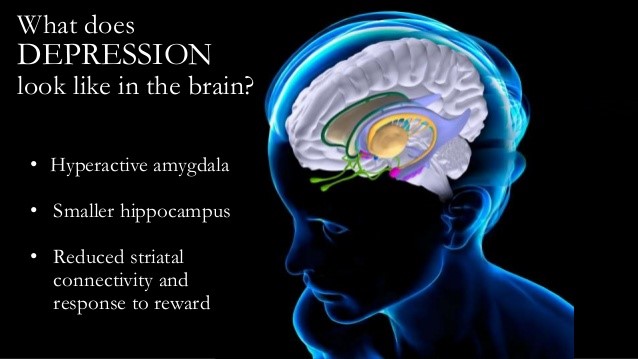Chapter 13: Psychiatric Disorders
In this Chapter
Major Depression
1Clinical or major depression, with its harrowing feelings of sadness, hopelessness, pessimism, loss of interest in life, and reduced emotional well-being, is one of the most common and debilitating mental disorders. The disorder also comes with disturbances of sleep and appetite, decreased energy, and often cognitive disturbances such as difficulty concentrating and remembering. Depression is as disabling as heart disease or arthritis. What’s more, depressed individuals are at a significantly elevated risk of suicide.

2While both genes and the environment play a role in an individual’s risk for depression, stress also can trigger a depressive episode. We now know that the physical symptoms may reflect disturbances in the hypothalamus, resulting in an excessive production of stress hormones. This has been shown in the laboratory: Many depressed patients fail to shut off secretion of the stress hormone cortisol in response to potent synthetic analogs that normally feed back to shut off secretion. Experiments with positron emission tomography (PET) imaging have also implicated a region of the anterior cingulate gyrus within the prefrontal cerebral cortex in depression. This region, which normally integrates aspects of cognition and emotion, is the chief experimental target for deep brain stimulation in severely depressed patients who have not responded to other treatments.
3In the United States, the lifetime risk of a depressive episode severe enough to warrant treatment is approximately 18 percent. Put another way, in the past 12 months, 6.7 percent of U.S. adults experienced a major depression. Fortunately, 80 percent of these individuals respond to drugs, psychotherapy, or a combination of the two. Some severely depressed patients can be helped with electroconvulsive therapy. As mentioned above, those patients who do not respond to the standard antidepressant drugs may be helped by deep brain stimulation approaches, which were originally developed for patients with neurodegenerative disease.
4Currently, approved antidepressant drugs increase levels of norepinephrine or serotonin in synapses. A few medications also target dopamine. The well-known selective serotonin reuptake inhibitors, or SSRIs, act on serotonin alone. The increased levels of neurotransmitters then initiate plastic changes in cells and circuits, leading to an improvement in symptoms over several weeks. In addition, cognitive behavioral psychotherapies have been shown to be effective.
5Recently, ketamine, a drug that blocks NMDA glutamate receptors, has been shown to alleviate depressed symptoms rapidly. Because ketamine has many side effects, it is not likely to be used clinically, but these findings have set off an exciting search for new pharmacologic approaches.